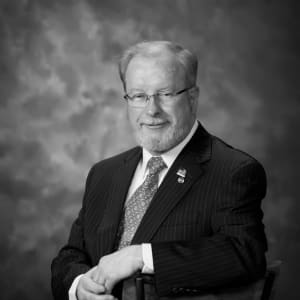Travel Nurse Taxes: Preparing for Tax Season
 Credit: kate_sept2004 / Getty Images
Credit: kate_sept2004 / Getty Images- Travel nurses have unique tax situations that require special consideration.
- Travel nurses are strongly encouraged to use a tax professional with experience.
- There are concrete steps you can take to make tax season easier for yourself as a travel nurse.
Travel nursing is a unique form of employment with many different tax considerations. Travel nurses are paid a premium to be available on short notice and jump into work virtually without orientation.
Traveling reached all-time popularity during the COVID-19 pandemic, with many nurses leaving their staff positions for better pay and more control over their schedule. According to AMN Healthcare, one of America’s largest staffing agencies, 95% of U.S. hospitals reported using travel nurses during the pandemic.
Though those numbers have decreased, travel nursing remains an excellent option for staff nurses looking to increase their income, expand their skill set, or experience a new location. If you’re considering making the switch, know the basics of tax preparation, tips to maximize your deductions, and mistakes to avoid.
Avoid Making These 4 Mistakes When Preparing for Tax Season
As the name implies, one of the biggest draws of travel nursing is the opportunity to work in many locations throughout the country. However, while the big paychecks and exotic travel are huge draws, the complex reality of multistate tax preparation can be daunting. Misinformation is everywhere, and it’s essential that you know your rights and responsibilities to avoid costly tax mistakes.
We spoke with Sarah Gaines, MSN, RNC-OB, an experienced travel nurse and the founder of the Six Figure Travel Nurse LLC, who shared her tax prep tips for travel nurses.
When asked her number one piece of advice for new travelers, Gaines says, “I’ve learned throughout the years never to take tax advice from your recruiter. You may assume they’re the expert — and often, they’re very confident giving that advice. But only take tax advice from tax professionals.”
And, because we aren’t tax professionals, we spoke to financial pros to get their advice. Avoid these four tax mistakes as a travel nurse.
 Neglecting to Research
Neglecting to Research
Before you jump into your first travel nursing assignment, it’s crucial that you do your research. The thrill of a new contract can be dizzying, but make sure you’re adequately prepared.
Answer the following questions before you sign on the dotted line:
- What is the cost of living in the area you’re considering?
- Is that cost factored into your nontaxable stipend?
- Do you meet the IRS requirements for duplicating expenses?
- Are you classified as a W2 employee or an independent contractor?
 Underestimating Costs
Underestimating Costs
While travel nursing does pay significantly more than most nursing jobs when factoring in your tax-free stipend, it’s not without costs. The cost of moving, travel, and continuing education are all things travel nurses often pay upfront and need to be accounted for in your budget.
 Missing State-Specific Requirements
Missing State-Specific Requirements
From a tax perspective, the most complex aspect of travel nursing is accounting for the different taxes, rules, and regulations of each state you work in. If you travel in two or more states throughout the year, popular tax preparation software may not be able to meet your needs adequately.
It’s recommended that you reach out to a tax professional who has experience in tax prep for multistate submissions.
 Believing the Myths
Believing the Myths
Travel nursing myths abound. One myth is that you must only live 50 miles from the facility to qualify for the nontaxable living stipend. Gaines says this is false and a mistake that could cost you.
She says, “The IRS doesn’t care that you live 50 miles away. They care that you can prove you’ve duplicated expenses. However, many agencies have rules like this. That’s where the myth came from, a misunderstanding between agency and IRS requirements.”
You must prove you reside in your home state and are duplicating expenses to qualify for that tax-free stipend. This means being able to produce records, such as a mortgage, lease, or utility bill.
Gaines also warns against accepting legal advice from social media influencers or recruiters for the same reason. For example, many recruiters may advise investing in a P.O. Box as a workaround, but this is tax fraud.
6 Tax Prep Tips for Travel Nurses
Now that you know things to avoid during tax preparation, let’s dive into the best tips to keep you organized and maximize your tax benefits.
- 1
Use an Experienced Tax Professional
Every financial professional and travel nurse we spoke to strongly recommends using an experienced tax professional, specifically one who has worked with travel nurses, if possible.
While self-service tax software may have been a convenient choice as a staff nurse, travel nurse tax preparation can get complicated quickly, and the stakes are high.
- 2
Consult Before Signing
If you choose to use a tax professional to prepare your taxes, send them your contract before signing. Don’t be afraid to ask a tax professional to evaluate your contracts. They may be able to help you negotiate your terms by understanding your deductions and the tax implications of overtime.
- 3
Build an Emergency Fund
Because things can change on a dime, it’s vital to have an emergency fund before you start traveling. If possible, maintain savings for 3-6 months’ worth of living expenses. This covers you in case unexpected costs arise or your facility cuts your contract (which happens sometimes).
- 4
Know Your Contract
The most critical step in accepting your travel assignment is reading your contract thoroughly before signing. Contact your recruiter first if you find something in your contract that you don’t understand or object to.
But be wary of verbal promises. Make sure you get everything in writing in the contract itself. Legally speaking, if it isn’t written, it isn’t binding.
- 5
Document Everything
Just like at your bedside nursing job, documentation is key for tax preparation. The IRS requires proof of duplicated expenses, receipts, and proof of income in case of an audit. You’ll want to keep careful records of all your contracts, income from per diem roles in your home state, and expenses.
William O’Donnell, a certified financial fiduciary and president of Heartland Financial Solutions LLC, recommends using technology to streamline this process.
O’Donnell says, “Try using an expense tracking app that lets you record expenses and records copies of receipts. Having good records is crucial to maximizing your tax deductions.”
- 6
Use a Separate Account
A good accounting tip to keep you organized throughout the year and minimize headaches during tax season is to open a separate account where all your travel nursing transactions occur.
Maintaining separate bank accounts and records will make it much easier to itemize deductions and spot potential issues for your tax preparer.
Travel Nurse Tax Write-Offs
There are many expenses that travel nurses can write off, but make sure you don’t double-dip. An example of double-dipping would be writing off a cardiopulmonary resuscitation course when you’ve already been reimbursed for that by your agency.
Each tax write-off is different; some things require calculations. Again, consult a tax professional if you need more clarification.
Here is a noncomprehensive list of travel nursing tax write-offs:
- Licensing
- Continuing education for nurses
- Car expenses, such as repairs or registration
- Mileage
- Nursing uniforms
- Parking
- Travel expenses, including tolls
- Malpractice insurance for nurses
Consult a tax professional if possible and keep meticulous records of all expenses and income to avoid common tax pitfalls. Now that you know these mistakes to avoid and tips to use, you’re ready for tax season as a travel nurse.
Meet Our Contributors

Sarah Gaines is a travel nurse expert, online educator, and mentor helping nurses seek out, secure, and leverage premium contracts so that they can escape bedside burnout, accelerate their career, and retire early. Over the years, she’s cultivated a growing community that connects thousands of Six Figure Travel Nurses from across the globe! Gaines uses the power of social media to share insightful travel nurse tips, a behind-the-scenes look into her life as a full-time digital nomad, and the wisdom she’s gained as a retired RN turned entrepreneur who continues to build wealth while traveling the world.

William O’Donnell is a financial advisor and certified financial fiduciary with a master’s degree in healthcare administration. He is the president and wealth manager at Heartland Financial Solutions. He has been serving financial advisory clients for more than 30 years.
You might be interested in

Tips for How to Maximize Your Travel Nurse Pay
As a travel nurse, you can make a considerable amount of money, more than you would as a staff nurse. Explore tips from travel nurses on ways to bring home even more pay while on and off assignments.

A Day in the Life of a Travel Nurse
Are you interested in what a travel nurse does on a typical day? Dive into what to expect and the pros and cons of being a travel nurse.

Top States for Travel Nurses (Summer)
Travel nurse assignments are adventurous and offer a competitive salary. Consider these nine best states for travel nurses in the summer.